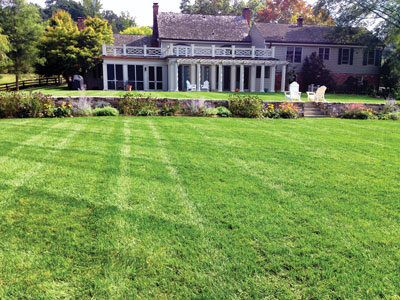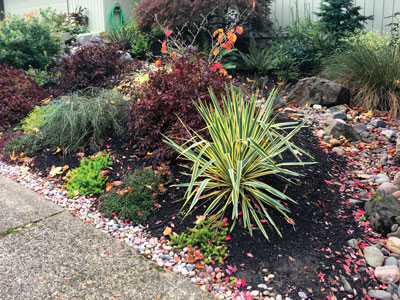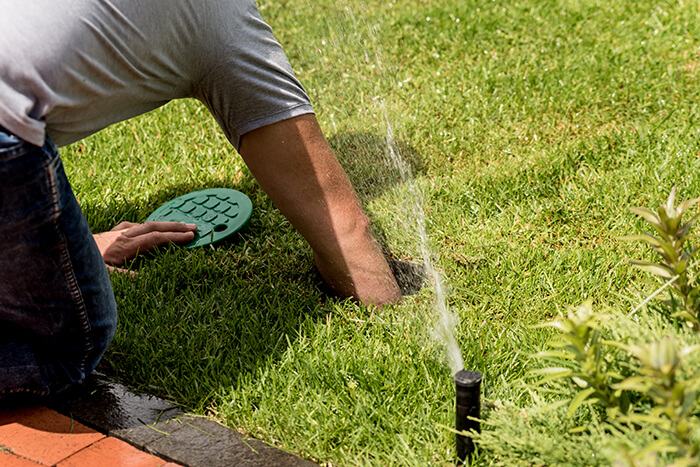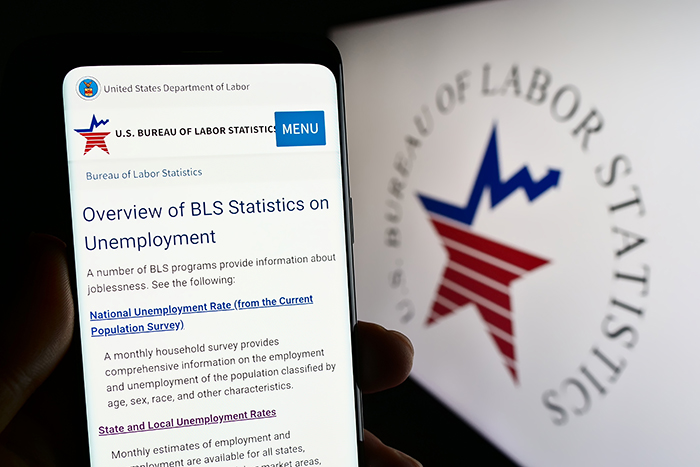When it comes to water regulations, landscape and irrigation contractors across the country are challenged to find ways they can continue to maintain and grow their businesses and manage customer expectations while facing the demands of bureaucracy. In the past few years, many contractors say that they’ve seen water go from mostly unregulated to increasingly regulated in various ways. Everything from water restrictions to a growing interest in less water-intensive landscaping to traditional water alternatives are all issues arising from this shift.
There’s no doubt that water is a regional issue, as rainfall varies dramatically from one area of the country to the next. Of course, restrictions can even differ from one municipality to the next.
Marty DeNinno, owner of Pinnacle Irrigation and Nightlighting in Haddonfield, New Jersey, says some of the areas the company services can have water restrictions as tight as only two permissible watering days per week. Other areas in the same region have hardly ever seen restrictions. Each year, it seems to run the gamut.
“We’ve been doing this a long time and we’ve seen it go from no restrictions to total restrictions,” explains DeNinno. “It’s an ever-changing thing for us here.”
DeNinno says that water regulations tend to come and go, and that’s relatively manageable for business because people still request work.
“Even when we’re in a drought, we’ll still get irrigation work because people do recognize that those water restrictions will ultimately be lifted,” he says. “So, we are lucky in that way as compared to a state like California, where they are living with those conditions more consistently.”
However, DeNinno says that what does grind his business to a halt is when water restrictions stop landscape contractors from doing new installation work.
“We rely heavily on the landscape professionals in our area to install plant material, but they often shut down when restrictions go into place saying they don’t want to install anything because it can’t be watered,” he says. “That trickles down to us. When they stop working, we feel the impact. The green industry and irrigation go hand-in-hand, and there’s no doubt that what they do drives our business.”
Managing a changing business
Just keeping up with what’s going on can be a job in itself, says Rodney Krumnow, owner of Pro Irrigation in Marlin, Texas. He says water regulations are constantly changing, and it’s not always easy to keep up with the latest information.

But he says he does not feel particularly challenged by water regulations. He focuses on educating the customer and recognizes that there’s not much more he can do beyond that.
Krumnow is also committed to maintaining a high level of quality, no matter what.
“Sometimes, that means I lose a job, but I’d rather lose a job than compromise,” he says. “A job done poorly always comes back to haunt you. That’s why we have to find ways to work with regulations and restrictions while still maintaining the best quality.”
It’s a tall order but one that can often be accomplished by keeping the client educated, says Krumnow.
Educating the customer
Education is a vital part of the solution when it comes to managing customer expectations. Kenny Shiflett, CLIA, owner of Foothill Irrigation in Charlottesville, Virginia, says in order to be successful, education has to be an ongoing part of the conversation. More specifically, customers need to understand what is in your control and what isn’t.
Shiflett says a lot of the conversation around water regulations can also open the door to talking about new weather-based technology and smart controllers. Naturally, water restrictions make people more aware of smart water usage, and this is the time to talk to them about how the industry has advanced. This is one way that Shiflett says that he’s working with the everchanging industry instead of trying to go against it.

“I would say that five to 10 years ago, 99% of irrigation clients were overwatering,” Shiflett says. “But now, as technology has advanced and more people are using weather-based controllers, there’s been a big shift. But people still need to be educated on why this upgrade matters. They need to understand that while upgrading a system might be costly on the front end, it’s going to save them a lot of money in the long-run.”
Having industry accreditation helps a lot when it comes to conducting these conversations.
“I have my CLIA and I do think credentials like that help when you are in front of a customer,” he says. “It helps them view you as an expert and gives credibility to what you say. I believe it’s important to give information upfront, to be honest and to explain any numbers that you throw at them. If you provide an understandable explanation, it’s going to work in your favor.”
Phil Severson, president of Down to Earth Irrigation LLC in Portland, Oregon, says he’s lucky they don’t deal with a lot of water restrictions. However, water conservation products are heralded in the region. After all, Portland is regularly named one of the most environmentally friendly cities in the world.
“Our goal is always to put the most water-conserving products out there,” Severson says. “We use a lot of drip. In fact, that probably comprises around half of our business now. While we don’t have a lot of water regulations here in the Northwest, they do push water-conserving nozzles and offer rebates for them, so that undoubtedly helps us sell jobs.”
In terms of educating the client, Severson admits that most of his customers are already environmentally savvy, so that eases a lot of the burden.

“As a rule of thumb, people in the Northwest are pretty in tune with wanting to be water-conscious,” he says. “I would say that most of my customers get it. Water is a finite resource and we need to be as conservative as possible. Most people want to be part of that solution.”
But that’s not the case everywhere. In Lincoln, Nebraska, Judson Byleen, owner of Judson Irrigation, says trying to talk to folks about water conservation often feels like a losing battle. Because water restrictions are basically a nonissue in his region, it’s just not something that is on his clients’ minds.
“In 45 years, we have had one year of water restrictions — and that was really a tough year — but it’s just not something we deal with here,” Byleen says. “And that year that we did, it almost had the reverse effect on peoples’ mindset. If they were only allowed to water on Monday, Wednesday and Friday, you can be sure that they watered those days whether their lawn needed it or not.”
Last year, Byleen says that the extensive flooding in Nebraska posed its own set of challenges.
“Trying to talk to people about water conservation when there were homes in our area being washed away just wasn’t effective,” Byleen says. “I definitely think that the conversations around water conservation are regionally driven. There are still a lot of people that don’t see the value.”
Diversifying business
Sometimes, the best solution to being successful in an increasingly regulated industry is to find ways to work with water restrictions. In Virginia, Shiflett says they have dealt with various temporary water restrictions over the years along with rising water costs. Since water costs are tiered in his area, water bills can suddenly skyrocket. As a result, they’ve continually sought ways to be innovative and keep up with whatever is coming down the pipeline. Currently, that seems to be transitioning into more well work.

“Because people are drilling wells on their property as a result of water restrictions and overall high water cost, we’ve recognized that we have to diversify and expand into more segments of the industry. We don’t drill the wells, but we have expanded into pumps, reservoir tanks and rainwater collection.”
Shiflett says they started looking into well work in 2003, following a significant drought in 2002, when regulations first began to have a serious impact. Since then, the cost of water has continued to rise and that’s put this effort at the forefront. Shiflett says that he sees interest in this type of work only growing.
“It comes down to the fact that trying to fight regulations will always be a losing battle,” he adds. “How can we continue to be successful when we know regulations will continue to come? The answer is by evolving and adapting our business.”





